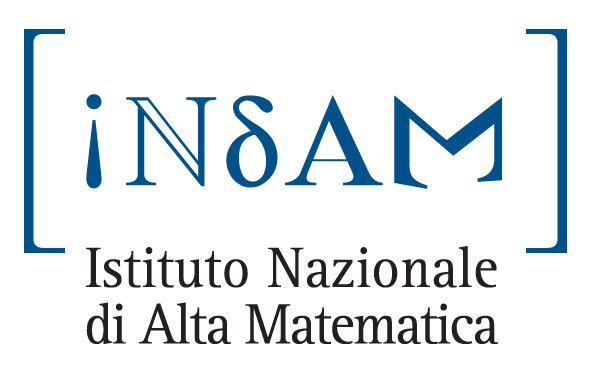
Workshop Program
| 09.00 - 09.10 |
Opening Session | |
| 09.10 - 10.25 |
Invited Talk: Alessandro Astolfi Immune response enhancement via hybrid control |
|
Session 1 |
||
| 10.25 - 10.45 | Nicolas Mobilia, Alexandre Donzé, Jean Marc Moulis and Eric Fanchon. Producing a Set of Models for the Iron Homeostasis Network |
|
| 10.45 - 11.15 | Coffee Break | |
Session 2 |
||
| 11.15 - 11.55 | Ezio Bartocci, Luca Bortolussi, Laura Nenzi and Guido Sanguinetti. On the Robustness of Temporal Properties for Stochastic Models |
|
| 11.55 - 12.35 | Lubos Brim, Jana Fabriková, Tomáš Vejpustek and David Šafránek. Robustness Analysis for Value-Freezing Signal Temporal Logic |
|
| 12.35 - 12.55 | Ricardo G. Sanfelice and Qin Shu. A Hybrid Model of a Genetic Regulatory Network in Mammalian Sclera |
|
| 12.55 - 14.30 | Lunch | |
Session 3 |
||
| 14.30 - 15.10 | Tommaso Dreossi and Thao Dang. Falsifying Oscillation Properties of Parametric Biological Models |
|
| 15.10 -15.50 | Vincent Noel, Sergey Vakulenko and Ovidiu Radulescu. A hybrid mammalian cell cycle model |
|
| 15.50 - 16.10 | Oded Maler, Adam Halasz, Olivier Lebeltel and Ouri Maler. Exploring the Dynamics of Mass Action Systems |
|
| 16.10 - 16.45 | Coffee Break | |
Session 4 |
||
| 16.45 - 17.25 | Ye Chen, Adam Halasz and Jeremy Edwards. VEGF Signaling with One Receptor Cluster |
|
| 17.25 - 17.40 |
Closing Session | |
Invited Talk: Alessandro Astolfi
Immune response enhancement via hybrid control
This talk describes how the use of mathematical models of infectious diseases, and of hybrid control methods may result in the enhancement of the immune response. We mostly focus on the use of hybrid control to boost the immune reponse of HIV infected patients. To begin with we discuss in details the modelling assumptions and the effect of drug scheduling, formally and via simulations. We then develop a "therapeutic regime" based on "hybrid control" ideas and illustrate its effect on the immune system; and provide a hybrid systems interpretation for recent experimental studies on HIV prevention. The proposed ideas are finally exploited for malaria immunotherapy, in the treatment of myeloid leukaemia and of a general disease model.
Accepted Papers:
Online Proceedings:
http://rvg.web.cse.unsw.edu.au/eptcs/content.cgi?HSB2013
Download Pdf:
http://eptcs.org/Published/HSB2013/Proceedings.pdf
- Nicolas Mobilia, Alexandre Donzé, Jean Marc Moulis and Eric Fanchon.
Producing a Set of Models for the Iron Homeostasis Network - Ezio Bartocci, Luca Bortolussi, Laura Nenzi and Guido Sanguinetti.
On the Robustness of Temporal Properties for Stochastic Models - Lubos Brim, Jana Fabriková, Tomáš Vejpustek and David Šafránek.
Robustness Analysis for Value-Freezing Signal Temporal Logic - Ricardo G. Sanfelice and Qin Shu.
A Hybrid Model of a Genetic Regulatory Network in Mammalian Sclera - Tommaso Dreossi and Thao Dang.
Falsifying Oscillation Properties of Parametric Biological Models - Vincent Noel, Sergey Vakulenko and Ovidiu Radulescu.
A hybrid mammalian cell cycle model - Oded Maler, Adam Halasz, Olivier Lebeltel and Ouri Maler.
Exploring the Dynamics of Mass Action Systems - Ye Chen, Adam Halasz and Jeremy Edwards.
VEGF Signaling with One Receptor Cluster
Systems biology aims at providing a system-level understanding of biological systems by unveiling their structure, dynamics and control methods. The intrinsic multi-scale nature of these systems, both in space, in organization levels, and in time, makes extremely difficult to model them in a uniform way, e.g., by means of differential equations or discrete stochastic processes. Furthermore, such models are often not easily amenable to formal analysis and their simulations at the organ or even the cell level are frequently impractical. Indeed, an important open problem is finding appropriate computational models that scale well for both simulation and formal analysis of biological processes. Hybrid modeling techniques, combining discrete and continuous processes, are gaining more and more attention in systems biology, and they have been applied to successfully capture the behavior of several biological complex systems, ranging from genetic networks, biochemical reactions, signaling pathways and cardiac tissues electrophysiology.
This workshop aims at collecting scientists
working in the area of hybrid modeling applied to systems biology, in order to discuss about
current achieved goals, current challenges and future possible developments.
Topics of interest include, but are not limited to:
- Hybrid models of biological systems (case studies of genetic, cellular networks, models of tissues, etc.)
- Models of biological systems with hybrid behavior
- Computational and mathematical analysis techniques for hybrid systems (i.e. reachability, model checking, abstract interpretation, bifurcation theory for hybrid dynamical systems, stability analysis, etc.), with applications in Systems Biology
- Hybrid system identification techniques (learning the model from the experimental data)
- Efficient simulation techniques for hybrid systems
- Hybrid modeling languages for biological systems
- Hybrid systems coping with incomplete and uncertain information
- Hierarchical hybrid systems for multi scale analysis
- Stochastic hybrid systems
- Hybrid simulation (stochastic/deterministic) methods for biological systems
- Abstraction and approximation techniques
- Hybrid systems modeling for synthetic biology
- Hybrid control of biological systems
- Sensitivity analysis for hybrid systems
- Behaviour-driven parameters identification for hybrid systems
- Analysis and simulation tools
We solicit the submission of unpublished results that address on both
theoretical and applied aspects of hybrid modeling techniques in
systems biology.
The proceedings will be published in the Electronic Proceedings in
Theoretical
Computer Science (EPTCS) series.
Paper
submission
Full papers should be no more than 15 pages long, typesetted in the EPTCS-style.
Electronic submissions of abstracts and of full-length papers (in PDF
format), can be done
through the online
submission system.
HSB 2013 will be co-located with ECAL 2013, 12th European Conference on Artificial Life, September 2-6 2013, Taormina, Italy.
Registration
The registration can be done via the ECAL
2013 web site.
Registration as Presenting Author: June 15, 2013
Early registration: June 15, 2013
Late registration: June 16 - September 6, 2013
On-Site registration: September 2-6, 2013
| June 14, 2013 | - | Abstract submission deadline | ||
| July 5, 2013 (initially 19 June) | - | Full paper submission deadline | ||
| July 31, 2013 (initially July 12) | - | Notification of paper acceptance | ||
| August 10, 2013 (initially July 24) | - | Camera-ready of accepted papers |
- Alessandro Astolfi, Imperial College London, UK
- Thao Dang, CNRS/VERIMAG, Grenoble, France
- Carla Piazza, University of Udine, Italy
- Ezio Bartocci, TU Wien, Austria
- Calin Belta, Boston University, USA
- Luca Bortolussi, Univerity of Trieste, Italy
- Thao Dang, VERIMAG/CNRS, Grenoble, France (co-chair)
- Alexandre Donzé, UC Berkley, USA
- James R. Faeder, University of Pittsburgh, USA
- François Fages, INRIA, Rocquencourt, France
- Etienne Farcot, University of Nottingham, UK
- Gregor Goessler, INRIA, Grenoble, France
- Adam Halasz, West Virginia University, USA
- Jane Hillston, University of Edinburgh, UK
- Agung Julius, Rensselaer Polytechnic Institute, USA
- Heinz Koeppl, Swiss Federal Institute of Technology, Zurich, Switzerland
- Pietro Lio, University of Cambridge, UK
- Oded Maler, VERIMAG/CNRS, Grenoble, France
- Giancarlo Mauri, University of Milano-Bicocca, Italy
- Bud Mishra, NYU, USA
- Chris Myers, University of Utah, USA
- Carla Piazza, University of Udine, Italy (co-chair)
- Ovidiu Radulescu, University of Montpellier 2, France
- Scott A. Smolka, University of Stony Brook, USA
- Gouhei Tanaka, University of Tokyo, Japan
- Ashish Tiwari, SRI International, Menlo Park, USA
- Dongming Wang, UPMC-CNRS, Paris, France
- Verena Wolf, Saarland University, Germany
- Paolo Zuliani, Newcastle University, UK


